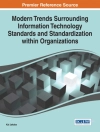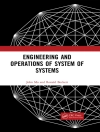
There have been great advances in many aspects of organic dairy farming, which has become increasingly efficient and productive with a strong market. However, in some cases this has occurred through increasing specialization and scale of production, which risks the sector not being able to fully address the major challenges of environmental and social sustainability, animal welfare and the ability to deliver affordable and nutritious products. These challenges can be addressed by referencing the core organic principles of health, ecology, fairness and care, by adopting a more holistic, systems-based perspective and with organic dairy farming being viewed as an important part of wider rural communities and landscapes. This chapter explores some of these ecological, social and food-system frameworks and what they mean for the future of organic dairy farming. Key elements include a focus on pasture-based production, reduced dependency on feed imports and incentives reflecting organic farming’s aims and aspirations.
Table of Content
- 1 Introduction
- 2 Organic dairy farming and sustainability
- 3 Organic dairy farming as part of surrounding ecological systems
- 4 Organic dairy farming as part of surrounding social systems
- 5 Organic dairy farming as part of food systems
- 6 Organic dairy farming as part of future sustainable development
- 7 Conclusion
- 8 Where to look for further information
- 9 References
About the author
Dr Stephen Roderick is Research Manager in the Rural Business School at Duchy College in the UK. He has published widely on animal health and farm resource management, was formerly Associate Editor of Organic Agriculture and co-edited Improving organic animal farming.











